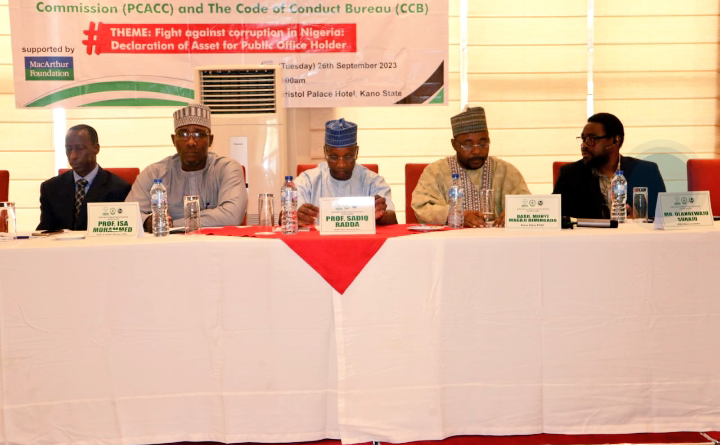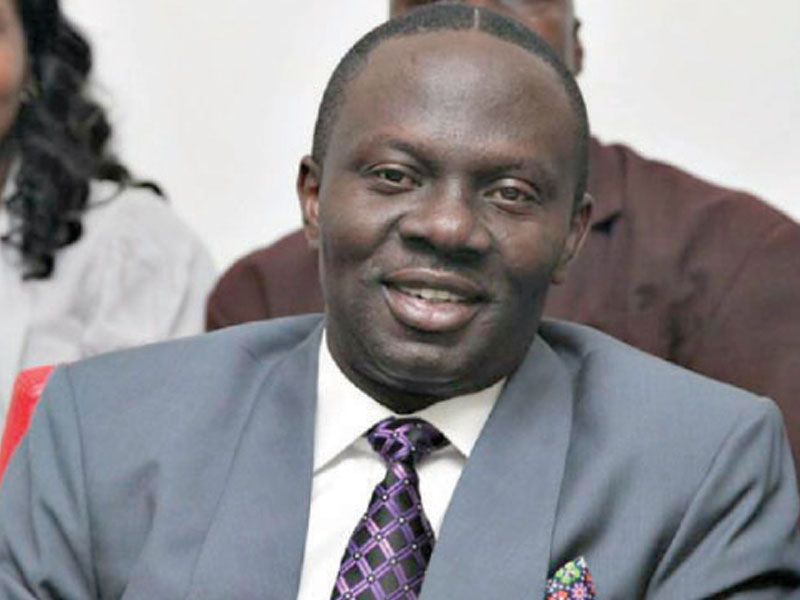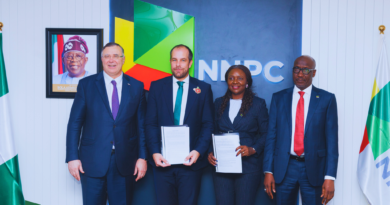Tinubu, VP, Public Officials Urged to Declare Assets
… HEDA Says 10 Nigerians in US, 13 in UK Own Property Worth $200m
President Bola Tinubu and Vice President Kashim Shettima have been asked to declare their assets and ensure public access as a moral lesson to strengthen public confidence in the Federal Government’s fight against corruption. Government officials at the local, state, and Federal levels were also urged to declare their assets in line with the constitution of Nigeria either as newcomers in the public service or as those who have completed their tenure.
Close to a hundred participants at a conference organized by the Human and Environmental Development Agenda, (HEDA Resource Centre) made the call in a communique issued at the end of the 32th Anti-Corruption Situation Room (ACSR) held in Kano on Tuesday. The theme of the conference was Fight against corruption in Nigeria: Declaration of Asset for Public Office Holders.
The communique noted that Nigeria’s Gross Domestic Product currently is expected to hit $489.80b by the end of 2023 and is projected to peak at $522.16 in 2024.
It said that Nigeria has also made tremendous efforts to fight corruption through its anti-corruption agencies but that corruption remains a major problem that continues to stunt socio-economic and political development in Nigeria.
The delegates said while former President Yar Adua made open declaration of his assets in 2007, his successor Mr Goodluck Jonathan did not. They said while former President Mohammadu Buhari and his Vice President, Prof Yemi Osibajo declared their assets in 2015, they fail to do the same in 2023 after eight years of leading the country.
‘Corruption fuels poverty, unemployment, extremism and all forms of human misery. Asset Declaration remains one of the instruments needed to fight graft among public officials,’ the participants noted.
Presentations were made by the Chairman, HEDA Resource Centre, Mr Suraju Olanrewaju, Mr Femi Falana, (SAN), Executive Chairman, Kano State Public Complaints and Anti-Corruption Commission, Barr. Muhyi Magaji, Chairman, Code of Conduct Bureau, Prof Isa Mohammed, the Acting Chairman of EFCC, Mr. Abdulkarim Chukkol, the Director General of National Orientation Agency and ICPC were all represented among others. The Chairman of the event was former Executive Secretary, PACAC, Prof Sadiq Isah Radda.
The theme of the conference was Fights Against Corruption in Nigeria: Declaration of Asset for Public Office holder.
The participants said even though the Code of Conduct Bureau was established since 1979, public officials continue to undermine the key instrument in the global fight against corruption. They observed that the CCB also covers owning of foreign accounts, secret society membership and conflict of interest of public officials.
Speaking at the conference, Prof Radda regretted that in 2015, former President Mohammadu Buhari sent members of PACAC to South Korea to understudy the fight against corruption regarding asset declaration. He said on returning to the country, series of recommendations were made to the National Assembly but that the leadership of the legislature frustrated the far-reaching reforms necessary to defeat corruption in Nigeria.
The HEDA Chairman, Suraju Olanrewaju said HEDA Resource Centre’s recent global investigations revealed that 10 Nigerian Government officials in the United States own illicit property worth $56m while some 13 Nigerians in the United Kingdom fraudulently acquired property worth 120m pounds.
The representatives commended the Code of Conduct Bureau having filed over 1000 cases of non-declaration of assets adding that the institution needs greater empowerment for efficient performance.
The delegates also demanded that public servants and bankers should be made to declare their assets as a way to curb graft across board.
The communique said it is the duty of the Code of Conduct Bureau, (CCB) to ensure public servants declare their assets in line with Constitutional provisions. The CCB should guarantee access to the public assets declared by public officials.
In this respect, the National Assembly should empower the Code of Conduct Bureau to be able to perform its constitutional duties without hindrance. Stakeholders should also employ the use technology as an effective means of eliminating corruption in Nigeria’ participants said in the communique.
They observed that land acquisition is recognised as one of the focal points of graft actors. The anti-corruption agencies were therefore urged to work with each other, make effective use of bio-metrics and in collaboration with the Land Bureau to establish who owns which land and where in Nigeria.
Participants in the communique noted with deep concern instances related to public management of public funds including greater accountability expected from Nigerian National Petroleum Company, (NNPC Ltd) and other related cases including the non-remittance for over 18 years royalties amounting to over $60b dollars by oil stakeholders.




